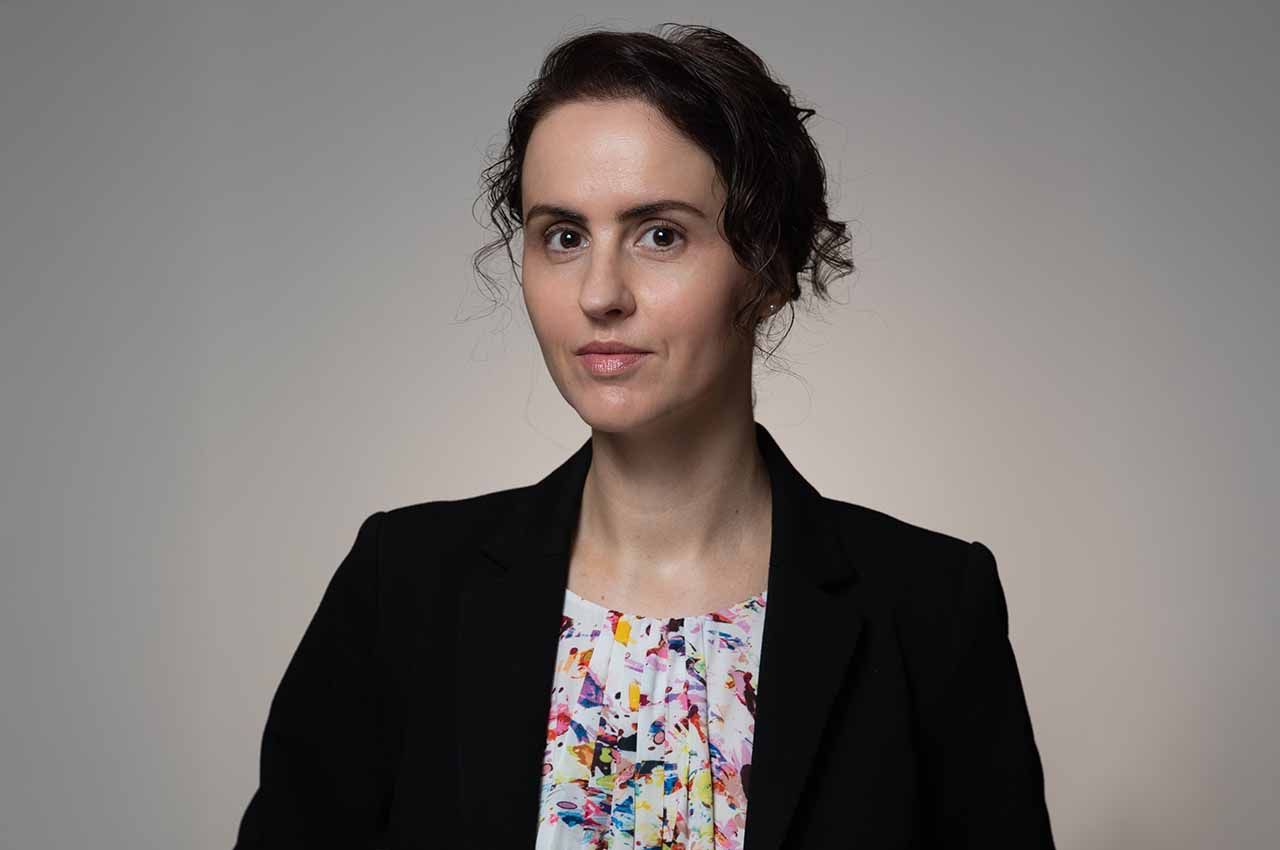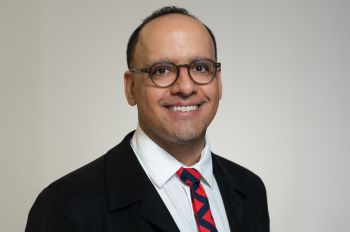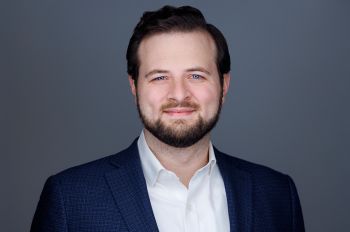Judicial Discretion: Chicago-Kent Professor Cited by Federal Judge

“It’s really an honor to know that your work has been valuable to a judge,” says Chicago-Kent College of Law Professor Sarah Fackrell. “It’s always nice to know that we’re not just sitting alone in our ivory tower, that we’re actually doing work that matters and that helps people—including judges—as they confront new and important legal issues.”
Fackrell’s article “The Counterfeit Sham,” which was published in the Harvard Law Review, was recently cited in a decision issued by Judge John F. Kness in the United States District Court for the Northern District of Illinois in his analysis of “Schedule A” IP cases. Fackrell, who also acts as co-director of Chicago-Kent’s intellectual property law program, has been studying the Schedule A phenomenon for years.
Schedule A cases involve a plaintiff alleging that dozens or even hundreds of defendants, (who are usually listed not on the complaint, but on a document labeled “Schedule A”) committed IP infringement. Most “Schedule A” cases are accompanied by a request to freeze the assets of all defendants, which is typically granted.
“By the time any defendant appears in the case, it is most often after the defendant’s account has been frozen and its funds restricted,” Kness writes in his decision in Eicher Motors v. Schedule A Defendants.
“This is about judicial discretion,” says Fackrell. “Judges aren’t required to entertain or allow Schedule A cases. The cases only happen if the judges let plaintiffs pursue them.”
Kness was concerned enough about the way that Schedule A cases are handled by the court that he took a step that Fackrell has never seen before: the judge stayed the Schedule A cases on his docket while he “reassess[ed] [his] previous approach in Schedule A litigation.” (See, for example, docket entry 6.)
In Eicher Motors, Judge Kness concluded that his “review has not been flattering: as explained below, the routine granting of preliminary injunctive relief in the absence of adversarial proceedings; the widespread sealing of judicial documents from public scrutiny; the pell-mell prejudgment freezing of defendants’ assets to ensure the practical availability of a legal remedy; and the mass joinder of multiple defendants is unjustified under the procedural rules and should not continue.”
Fackrell says, “I think it’s really impressive for any judge to be able to stop and say, ‘wait a minute here, I’m not sure I’ve been doing this right.’”
In the wake of Kness’s decision, Fackrell is interested to see how things will change in the world of Schedule A litigation.
“I suspect this decision will make waves. It remains to be seen how big those waves will be. Is this going to be tiny ripples in a pond or is this going to be a tsunami?” Fackrell asks. “I just don’t think we know yet.”
But Fackrell is already seeing a vibe shift in the way judges in Chicago are handling Schedule A cases.
“Because these cases run on judicial discretion, it’s going to be very interesting to see how other judges react to and whether they follow judge Kness’s decision. I already saw one judge denying a temporary restraining order that would have been granted a year ago. The decisions in these cases almost felt like a rubber stamp for a long time.”
Fackrell is continuing to study the phenomenon, and she doesn’t think it’s going anywhere anytime soon.
“I think the rumors of Schedule As’ imminent demise are greatly exaggerated,” she says. “This may change some plaintiff behavior in the short term. It might affect where they file. Maybe they’ll file more cases in Pittsburgh instead of in Chicago.”
Schedule A cases started being filed in the 2010s, and for more than a decade, they were filed in relative secrecy and received little scrutiny. “When I started writing about this, no one seemed to be paying much attention,” says Fackrell. “It’s gone from being this quiet cottage industry to all of a sudden having this bright spotlight on it, and certainly Judge Kness has aimed an even larger spotlight.”
Chicago-Kent College of Law has become a leader in public discussion and debate on the topic of Schedule A litigation. In April, the IP Law Society hosted a public panel discussion of the Schedule A phenomenon. And the Chicago-Kent Law Review will be holding an online symposium, titled “Unsealing Schedule A” on September 26, 2025. Registration for this symposium is free and open to the public.
Photo: Sarah Fackrell



